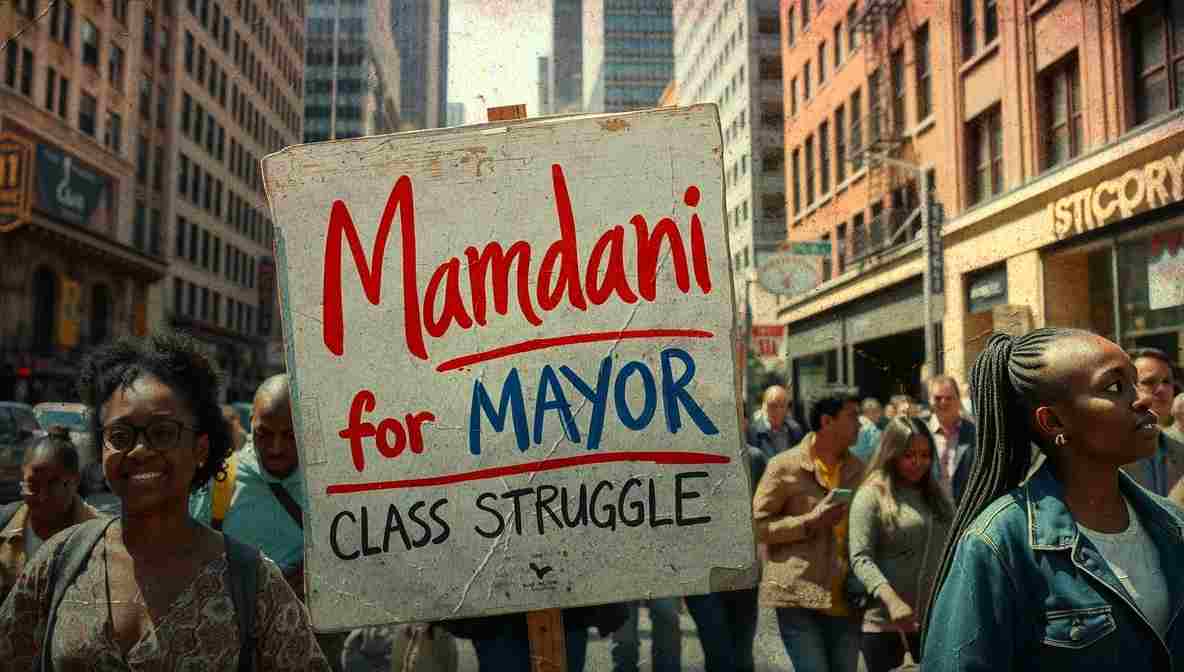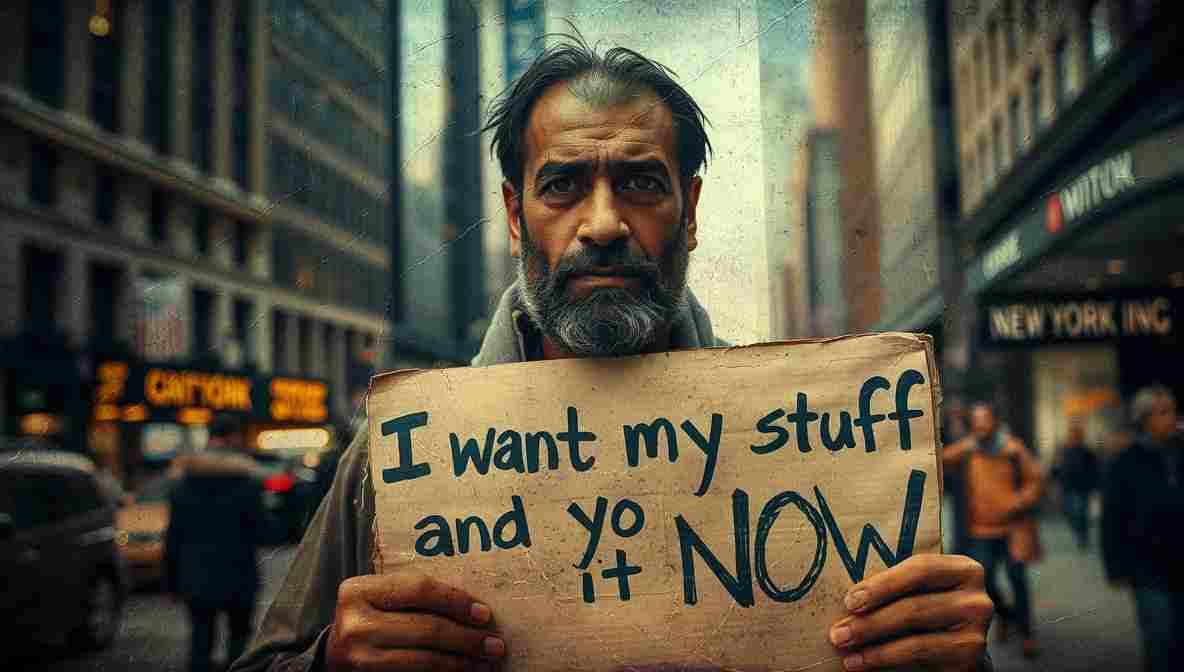In a surprising display of bipartisan cooperation, President Trump praised the democratic socialist leader during their first face-to-face meeting in the Oval Office
Unexpected Alliance Takes Shape in Nation’s Capital
In one of the most unexpected political encounters of the year, President Donald Trump and New York City Mayor-elect Zohran Mamdani met Friday at the White House in a meeting that defied expectations and political conventions. The 34-year-old democratic socialist, who will become the city’s first Muslim and South Asian mayor when he takes office January 1, spent over half an hour in private discussions with Trump before the two appeared together in the Oval Office for a joint press availability.
The meeting, which Trump described as both “great” and “very productive,” marked a dramatic shift in tone from the heated rhetoric that characterized the mayoral campaign. Trump, who had previously threatened to cut federal funding to a Mamdani-led New York City and repeatedly labeled him a “communist,” instead offered warm praise for the mayor-elect’s campaign and vision for the city.
Shared Vision for New York’s Future
“We have one thing in common,” Trump told reporters gathered in the Oval Office. “We want this city of ours that we love to do very well.” The president congratulated Mamdani on what he called an “incredible race” and predicted he would become “a really great mayor,” adding, “The better he does, the happier I am.”
According to analysis from the Brookings Institution on presidential transitions, such early meetings between presidents and newly elected local officials can set important precedents for federal-local cooperation. The Trump-Mamdani meeting appears to follow this pattern, with both leaders emphasizing their shared commitment to addressing New York City’s affordability crisis.
Mamdani, standing beside the seated president, kept his focus squarely on the issues that propelled his electoral victory. “I appreciated the meeting with the president,” Mamdani said. “It was a productive meeting focused on a place of shared admiration and love, which is New York City, and the need to deliver affordability to New Yorkers, the eight and a half million people who call our city their home, who are struggling to afford life in the most expensive city in the United States of America.”
Policy Priorities and Political Pragmatism
Throughout the meeting, both leaders returned repeatedly to themes of housing, cost of living, and public safety. Trump noted they discussed “housing and getting housing built, and food and prices,” while acknowledging that Mamdani “actually surprised” him with areas of agreement. The president said their meeting changed his perceptions about the job the mayor-elect would do in his hometown.
Research from the Urban Institute on housing affordability shows that New York City faces some of the nation’s most severe housing cost challenges, with one in four residents living in poverty according to city data. Mamdani’s campaign centered on addressing these issues through proposals including rent freezes for rent-stabilized units, free public buses, universal childcare, and city-owned grocery stores.
The mayor-elect explained his policy approach during the press availability: “We spoke about rent, we spoke about groceries, we spoke about utilities. We spoke about the different ways in which people are being pushed out. And I appreciated the time with the president, I appreciated the conversation, and I look forward to working together to deliver that affordability for New Yorkers.”
Bridging the Political Divide
Perhaps most remarkably, the meeting featured moments of genuine rapport despite the stark ideological differences between the two men. When asked about past criticisms, Trump demonstrated an unexpected willingness to move past campaign rhetoric. A reporter questioned Mamdani about calling Trump a “fascist” in previous interviews, and Trump quickly interjected with humor: “That’s OK, you can just say yes. It’s easier. It’s easier than explaining it. I don’t mind.”
According to the Carnegie Endowment’s research on political polarization, such displays of civility between political opponents have become increasingly rare in American politics. The Trump-Mamdani exchange stood in contrast to the intense partisan divides that typically characterize interactions between progressive Democrats and the Trump administration.
Trump went further in rejecting some of the harshest attacks that had been leveled against Mamdani by members of his own party. When asked about New York Rep. Elise Stefanik’s characterization of Mamdani as a “jihadist,” Trump said, “No, I don’t. She’s out there campaigning, and you say things sometimes in a campaign. I met with a man who’s a very rational person. I met with a man who wants to see — really wants to see New York be great again.”
Political Calculations and Cross-Party Appeals
The friendly tone of the meeting served strategic purposes for both politicians. For Trump, facing economic concerns that could impact Republican prospects in upcoming elections, showing cooperation with a mayor focused on affordability may help address voter anxieties. A recent Fox News poll found that 76% of Americans have a negative view of the economy, presenting challenges for the party in power.
For Mamdani, the meeting represented an opportunity to secure federal support for his ambitious policy agenda while demonstrating his willingness to work across party lines. He noted that some New York voters supported both Trump in the presidential election and his mayoral campaign, citing shared concerns about cost of living. “I can tell you that there were more New Yorkers that voted for President Trump in the most recent presidential election because of that focus on cost of living,” Mamdani said. “And I’m looking forward to working together to deliver on that affordability agenda.”
Analysis from the Pew Research Center on voter priorities confirms that economic concerns, particularly inflation and cost of living, ranked among the top issues for voters across the political spectrum in recent elections.
Areas of Potential Conflict
Despite the cordial atmosphere, significant policy differences remain between Trump and Mamdani that may create future tensions. Trump has previously floated sending federal troops and ICE agents to New York City, while Mamdani has been a vocal critic of ICE and has pledged that the NYPD will not cooperate with federal immigration enforcement on civil matters.
When asked how they would reconcile these differences, Trump said, “I think we’re going to work them out. We can talk about anything you want. If you don’t have safe streets, it’s not going to be a success. So, we’re going to work together.” He added that during their private meeting, Mamdani emphasized wanting “to have a safe New York,” suggesting room for negotiation on enforcement approaches.
The president also downplayed his previous threats to cut federal funding from New York City, though he did not explicitly renounce those threats. Trump said their meeting “actually surprised” him and that they agree on issues such as crime and housing, even if “we may disagree on how we get there.”
Historical Context and Future Implications
Mamdani’s victory and this White House meeting represent a significant moment in American political history. At 34, he will be New York City’s youngest mayor in more than a century when he takes office. As the city’s first Muslim and first South Asian mayor, his election reflects changing demographics and political preferences in America’s largest city.
According to the Brennan Center’s analysis of electoral trends, younger progressive candidates have gained increasing traction in urban centers, often running on platforms focused on economic justice and affordability. Mamdani’s association with the Democratic Socialists of America and endorsements from figures like Senator Bernie Sanders and Representative Alexandria Ocasio-Cortez place him within this broader political movement.
Trump praised this political mentorship during the Oval Office appearance, saying, “Bernie Sanders and I agreed on much more than people thought. And when he was put out of the race, I think quite unfairly, many of the Bernie Sanders voters voted for me.” The president suggested Mamdani “is going to surprise some conservative people, actually, and some very liberal people.”
The Road Ahead
As Mamdani prepares to take office in January, he faces the challenge of implementing his ambitious policy agenda while navigating his relationship with a Trump administration that could either facilitate or obstruct his goals. The mayor-elect has proposed significant tax increases on wealthy residents and corporations to fund his programs, policies that may require federal cooperation or at minimum non-interference.
Trump indicated he would feel “very, very comfortable” being in New York City under Mamdani’s leadership, a statement that represents a dramatic reversal from his campaign rhetoric. “Yeah I would I really would especially after the meeting, absolutely,” Trump said when pressed on whether he would feel comfortable living in the city. “We agree on a lot more than I really thought.”
For his part, Mamdani maintained his focus on the issues that won him the election. “What I really appreciate about the president is that the meeting that we had focused not on places of disagreement, which there are many, and also focused on the shared purpose that we have in serving New Yorkers,” he said. “Frankly, that is something that could transform the lives of the eight and a half million people who are currently struggling under a cost of living crisis with 1 in 4 living in poverty.”
The meeting concluded with both leaders expressing optimism about future cooperation, though significant questions remain about how their partnership will function in practice. As New York City prepares for Mamdani’s inauguration and the implementation of his progressive policy agenda, the unusual alliance forged in the Oval Office on Friday may prove either a foundation for productive federal-local cooperation or merely a temporary détente in what could become a contentious relationship.
Political observers will be watching closely to see whether this display of bipartisan cooperation translates into substantive policy achievements or represents merely a symbolic gesture that gives way to more traditional partisan conflicts. For now, both Trump and Mamdani appear committed to at least attempting to find common ground, united by their shared identity as New Yorkers and their stated desire to see the city thrive.



